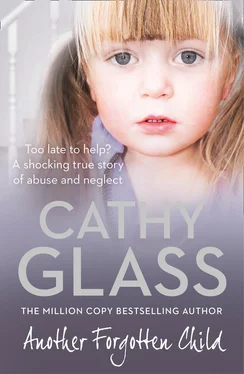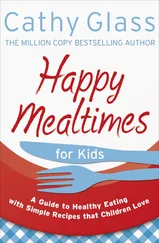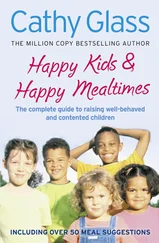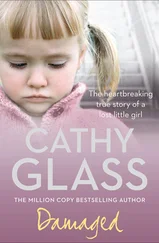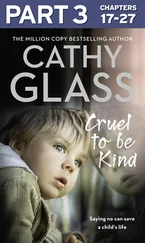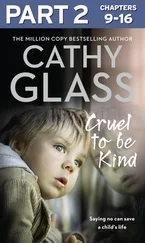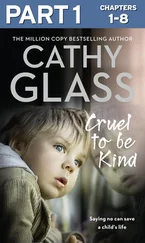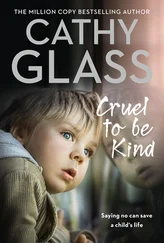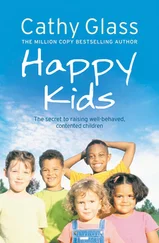‘Don’t mind,’ she said with a small shrug, which I knew meant yes.
I continued into her room and sat on the edge of the bed next to her. She was looking down at her lap and fiddling with her hands, looking very glum.
‘I love you,’ I said, which I find is always a good icebreaker and can’t be said too often.
‘Love you too,’ she said quietly but without looking at me.
Now I knew she was receptive and willing to hear what I had to say, I was ready with my explanation as to why I’d agreed to look after Aimee. I would also reassure Paula that I’d do all I could to minimize the disruption that Aimee staying with us would cause. I took a breath, ready to speak, but before I had a chance Paula said quietly: ‘It’s OK, Mum. I understand about Aimee coming.’
‘Do you? I’m not sure I do,’ I said with a small nervous laugh. ‘I think I’m too impulsive sometimes and I make decisions before I’ve properly thought them through.’
‘Only when it comes to fostering,’ Paula said. ‘You let your heart rule your head. The rest of the time you’re quite sane.’
I gave another small laugh and Paula managed to raise a smile too. ‘Look, love,’ I said, taking her hand in mine. ‘I know you have an important six months coming up with your A-level exams and I promise you I’ll keep things as calm as I can here. Also I want you to feel comfortable bringing your friends home, and I’ll make sure Aimee doesn’t interfere. You work hard and need to relax sometimes. I’ll keep Aimee amused.’ It sounded as though I was ostracizing Aimee, but we’d looked after children before with complex needs and I knew, as Paula did, just how demanding such children can be.
‘There’s no need to worry,’ Paula said, with another small shrug. ‘I’ll be fine.’
‘Good.’ I patted her hand. ‘Your feelings are very important to me,’ I said. ‘I hope you know I would never knowingly do anything I thought would upset you. I wouldn’t have agreed to look after Aimee if I thought you, Adrian or Lucy were really opposed to it.’ Fostering is always a balancing act between the needs of the foster child and those of the carer’s own children.
‘I’m not opposed to it,’ Paula said. Then she slipped her arms around my waist and laid her head on my shoulder, ready for a cuddle and to make up. I put my arms around her and we held each other for some time before she said, ‘You know, Mum, Aimee sounds a bit like Jodie.’
I looked at her, surprised that she too had made the connection. ‘I hope not,’ I said. ‘But if she is, then at least I’ll be better prepared to deal with her problems this time. I learnt a lot from looking after Jodie and I won’t make the same mistakes again.’ Although in truth I doubted I could have done much more to help Jodie, so deep was the damage that had been done to her. She needed specialist help.
Paula and I hugged each other for a while longer and once I was satisfied she’d recovered I left her to relax and listen to her music before she began her homework, while I went downstairs to make the dinner. I was grateful my children were so understanding and I was pleased that although we had disagreements – like any family – no one sulked and the air soon cleared.
At 5.30 p.m. Lucy, my adopted daughter, arrived home from her work as a nursery assistant.
‘Hi!’ I called from the kitchen as she let herself in the front door.
‘Hi, what’s for dinner?’ she returned from the hall.
‘Chicken and pasta bake.’
‘Great.’
I smiled to myself, for when Lucy had first arrived as a foster child seven years previously, she’d been borderline anorectic: she had been very thin and had hardly eaten anything. Now she was a healthy weight and enjoyed her food, as we all did. I’d adopted Lucy five years ago, so she was a permanent and much-loved member of my family.
Having taken off her coat in the hall Lucy came into the kitchen and as usual greeted me with a big kiss on the cheek.
‘Have you had a good day?’ I asked, as I always did when my children came home.
‘Yes, although the four-year-olds were over-excited after their visit to the fire station. So was my manager – by the firemen.’
I laughed, and decided I’d better tell Lucy straightaway about Aimee. ‘It’s possible we might be having an eight-year-old girl coming to stay on Thursday,’ I said.
‘Cool,’ Lucy said, helping herself to a biscuit.
‘She’s been badly neglected and has behavioural problems,’ I clarified.
‘OK. What’s her name?’
‘Aimee.’
‘That’s nice. Have I got time for a shower before dinner? I’m going to the cinema later.’
‘Yes, a quick one. Dinner will be fifteen minutes.’
‘Cool,’ Lucy said again, and planting another kiss on my cheek hurried off for a shower. Older than Paula, with a more robust constitution from her own experiences before coming into care, and with a life outside our home, Lucy had taken Aimee’s proposed arrival in her stride.
We ate at six o’clock and Aimee wasn’t mentioned again, and the evening progressed as usual, with Lucy out socializing and Paula doing her homework in between MSNing and texting her friends.
I didn’t hear anything further from either Jill or Kristen until Thursday morning, by which time Aimee’s room was prepared, even if I wasn’t. I’d already given the bedroom a good clean after Reece (the little boy whose story I told in Mummy Told Me Not to Tell ) had left the month before. Now I changed the Batman duvet cover for one with pictures of butterflies, which I hoped would appeal to Aimee, and I arranged some cuddly toys on the bed. As well as the bedroom furniture there was a toy box in the room with some games and puzzles; the rest of the toys were kept in cupboards downstairs. I’d sort out some clothes for Aimee once she arrived, when I’d have a better idea of her size. I kept an emergency supply of clothes (for both sexes and in most sizes) in the ottoman in my bedroom.
At lunchtime Jill telephoned and asked if I’d heard anything from Kristen. I hadn’t, so we assumed the case was still in court. An hour later Kristen phoned and said she’d just come out of court and the judge had granted the care order, which was clearly a relief. Kristen said she and her colleague, Laura, were on their way to Hayward school to collect Aimee. ‘Susan, Aimee’s mother, was very upset in court,’ Kristen said. ‘And her barrister was good, so I had to agree to let Susan see Aimee for half an hour at the end of school to say goodbye.’
‘All right,’ I said. ‘See you later.’ I put down the phone and thought of Susan going to school to say goodbye to her daughter.
I felt sorry for her, as I did for many of the parents whose children I fostered, for none of them started life bad with the intention of failing and then losing their children. I guessed life had been cruel to Susan, just as it had to Aimee.
Chapter Three Contents Cover Title Page Copyright Chapter One: The Child from Hell Chapter Two: Awaiting Aimee Chapter Three: A Challenge Chapter Four: ‘I Want Biscuits’ Chapter Five: Severe Neglect Chapter Six: ‘I’ll Tell Me Mum!’ Chapter Seven: Should Have Done More Chapter Eight: Meeting Susan Chapter Nine: ‘He’s Horrible’ Chapter Ten: Poor Role Models Chapter Eleven: The Phone Call Chapter Twelve: Craig Chapter Thirteen: More Trouble Chapter Fourteen: Keep Asking Chapter Fifteen: Quiet and Withdrawn Chapter Sixteen: Serious Allegation Chapter Seventeen: Problem Family Chapter Eighteen: Flashback Chapter Nineteen: Hatchet Chapter Twenty: ‘Father Christmas Didn’t Come to My House’ Chapter Twenty-One: Going for Gold Chapter Twenty-Two: Perfect Christmas Chapter Twenty-Three: A New Year Chapter Twenty-Four: Jason Chapter Twenty-Five: A Winner Now Chapter Twenty-Six: Progress Chapter Twenty-Seven: A Chance Meeting Chapter Twenty-Eight: Peter Rabbit Chapter Twenty-Nine: The Visit Chapter Thirty: An Incredible Family Epilogue Acknowledgements Exclusive sample chapter Cathy Glass About the Publisher
Читать дальше
